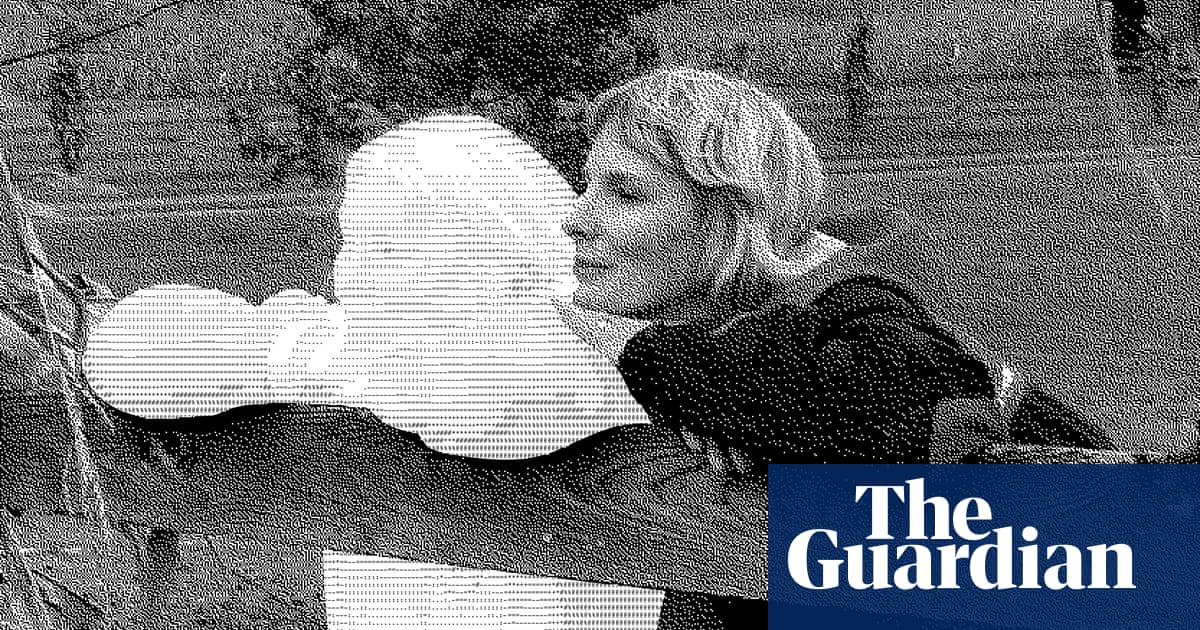
stablished by the start of the 1980s as a writer for Coronation Street and the creator of the nursing series Angels, Paula Milne was pleased but fearful to be invited to write her first single play. A Sudden Wrench, in which a woman fights to be taken seriously in the male world of plumbing, went out in March 1982 as a Play for Today, a BBC One strand that could reach audiences of up to 12 million in its heyday, and averaged 5 million.
“There’s a line in the script,” Milne remembers, “where the husband says to his wife, when she goes to work on a construction site: ‘Just remember, there’s no allowance for failure out there.’ And that pretty well sums up how I felt about writing for Play for Today. If you failed in that slot, it was pretty damn public.”
Looking back through the archives, ahead of the 50th anniversary on Thursday of the launch of Play for Today, it becomes clear that the plot had another external resonance – women single TV playwrights were almost as rare at the time as female plumbers.
Although there had been about 250 Plays for Today before Milne’s (the series occupied two dozen slots each year), she was only the 20th woman to have been commissioned in 12 series.
“While there were two or three gifted female producers in the BBC plays department at the time,” Milne remembers, “it definitely had a prevailing Oxbridge-macho ethos that was pretty damn intimidating. The fact that so few women writers contributed to the huge output of Play for Today bears that out. It’s not just that women didn’t get the breaks, but that our voice wasn’t heard during such an intense political period.”
Play for Today had started on the third Thursday of October 1970, (Tuesday later became its regular night), replacing The Wednesday Play, which had run for six years on the network. That midweek series had included at least two masterpieces of social-realist TV – Nell Dunn’s Up the Junction and Jeremy Sandford’s Cathy Come Home – but was caricatured as leftist miserabilism by rightwing critics and politicians.
Reviewing the first Play for Today in the next morning’s Guardian, Nancy Banks-Smith wrote: “The reason BBC changed the name Wednesday Play, and therefore the day of transmission, was a conviction, based on audience research, that people were avoiding the plays out of prejudice.”
In time, conservatives would have the same objection to the new strand, but, on the first night of transmission, it seemed to be aiming for warm inclusivity. The Long Distance Piano Player by Alan Sharp was a fable about a child prodigy who sets out to play the piano for four full days and nights. Banks-Smith, always a good reporter as well as a great critic, noted that it was a leftover Wednesday Play, recorded seven months earlier.
Sharp, who moved to Hollywood to write TV movies, is one of those who wrote only a single script among the more than 300 PFT episodes, a scripting equivalent to those in sports who win only one international cap. The honour of most called-up playwright is shared, with six each, between Dennis Potter – the peak Blue Remembered Hills (1979), a tale of youthful malice, with the children played by adult actors – and Mike Leigh. Absolute purists mutter that two of Leigh’s pieces had originally been created for theatre, but Abigail’s Party (1977) is the single most celebrated and cherished Play for Today, although Leigh deeply regrets that it was a TV recording of the stage production, rather than a reconfigured film, as happened, for example, with his Nuts in May (1976).
More surprising are the three authors who each featured five times in the series. The novelist and short-story writer William Trevor, although a habitual adapter of his fiction for the screen, has little association with the politically driven contemporary stories for which PFT is remembered. There was also a quintet of scripts from Jim Allen, a Mancunian ex-soldier and miner, and from Colin Welland, part of a screenwriting apprenticeship that led to an Oscar for the 1981 movie Chariots of Fire.
Among them were Allen’s The Spongers (1978), about the effect of welfare cuts on a mother with a vulnerable child, and United Kingdom (1981), a feature-length epic set amid anti-austerity riots in a northern city, in which Welland showed his versatility by playing a draconian chief constable; he had also appeared as one of the adult-sized kids in Potter’s Blue Remembered Hills.
United Kingdom and The Spongers established the tone of leftwing critique that enthralled many viewers (including the teenage me), but inflamed Thatcherite opposition to the BBC, seeding a hostility with ramifications to this day. As a journalist, Michael Gove, now chancellor of the Duchy of Lancaster, denigrated Play for Today.
But it is in the rank of those who wrote four PFT scripts that the biggest shock – and, historically, shame – occurs. Older viewers and historians of TV will not be surprised to find Trevor Griffiths and David Hare. The former’s Comedians (1979), adapted from his stage play about the morality of professional jokers, and the latter’s Licking Hitler (1978), exploring British wartime use of what we now call fake news, are among the finest achievements of the series. And, while detractors like to depict Plays for Today as relics of outdated attitudes to politics and drama, Comedians and Licking Hitler address issues – of artistic morality and political mendacity – that are currently urgent again.
Alongside Griffiths and Hare, on this tier of the leaderboard is Julia Jones, an unjustly neglected figure in TV drama, later known for BBC children’s adaptations such as Tom’s Midnight Garden. Less than one-tenth of the scripts for Play for Today across its 14 years were written by women, but, remarkably, more than 10% of those came from Jones. (It is, grimly, no surprise that this was not the only imbalance; less than 3% were by writers of colour.)
Jones was the first woman to feature in the series, on 28 January 1971, and, by odd coincidence, it turned on the same musical instrument as Sharp’s franchise starter, The Long Distance Piano Player. Jones’s The Piano explored the dilemma of a northern family moving from the old family home, which had space for Grandpa’s upright, to a new council house, where it wouldn’t fit. Nancy Banks-Smith found the play to have its “own comedy and poignancy” and thought a scene of a Lancastrian family row “authentic”. However, by the time of Jones’s fourth and final contribution – Back of Beyond in November 1974 – Banks-Smith sounded bored, and found more diversion in an episode of The Six Million Dollar Man.
When Play for Today ended in 1984, Jones was one of only six non-male dramatists to have written more than one edition. In late 1982, Milne had joined this group with John David, an autobiographical story about the decision to deny a lifesaving heart operation to her severely disabled son.
Strikingly, two of the other women to do the double – Rose Tremain and Rachel Billington – are now better known as novelists, as were three of the single-hitters (Beryl Bainbridge, Penelope Mortimer, Elaine Feinstein). This probably resulted from BBC Plays’ usual source of contributors – TV and stage drama. Because there were almost no high-profile women theatre writers in the 1970s, apart from Caryl Churchill (who had two PFTs screened in 1978), the diligent attendance of theatres by BBC scouts – which brought in Hare, Griffiths, Leigh, Howard Brenton and many others – created inbuilt gender-imbalance, although Carol Bunyan, Marcella Evaristi, and Mary O’Malley eventually arrived through that door.
Some of the novelists recruited, though, had been aspiring dramatists in a way that might surprise their readers. Late in the 1970s, Tremain had written two un-produced stage plays, including A Room for the Winter, in which a white dissident exile from South Africa is troubled by having a black landlady in London.
Tremain recalls that, when a major London producer turned down the play as “too gloomy”, her agent, the formidable Margaret “Peggy” Ramsay, told her: “You’d better write it for TV, dear”, a comment that confirms the sense at the time of the small-screen single play as a gloomster route. A Room for the Winter went out in November 1981, making Tremain the 17th female contributor in 11 years.
“I remember watching it when I’d just got back from a trip to America, with extreme jetlag, so it all felt very surreal,” Tremain says. “I had Peggy Ramsay’s voice in my head suggesting that all this work was second best because it was on TV.”
Banks-Smith admired the drama for “breathing a sense of love and pain”, and observed: “It was also, though it is probably illegal to say so, a remarkable play for a woman to write about men.” Tremain’s producer, June Roberts, encouraged her to write a second, Moving on the Edge, which went out in PFT’s final season.
Apart from the masculinity of the commissioning apparatus and the shortage of women in the feeder medium of theatre, another reason for the invisibility of women may have been that feminism, though clearly a form of politics, did not fit easily into the series’ more Westminster-centric definitions of power and opposition.
Rachel Billington, who, like Tremain, was a prose fiction writer with dramatic ambitions (she had written radio plays), was conscious of the opportunity to bring feminist perspective to the franchise. Her PFT pair was Don’t Be Silly (1979), about domestic violence, and Life After Death (1982), which depicts widowhood.
“Both my plays were a shout for women who had allowed themselves to become – in one case, fatally – undervalued, and in doing so lost their own self-esteem,” says Billington. “I had the idea for Don’t Be Silly when I fell over and got a black eye and, to my amazement, everyone assumed it was my husband. So then I got other women’s stories. I thought I was writing about a social issue, but, rewatching it recently, now it’s nearer politics.”
Milne, although an “avowed feminist”, was, perhaps because of her background in mass-audience TV soaps, wary of assuming that all women viewers shared these views. “I had the idea for A Sudden Wrench when I was in a supermarket doing the family shop surrounded by queues of exhausted looking women and I thought: ‘I want to write for them.’ I didn’t want to write a patronising feminist piece that might make them recoil, but depict an ordinary woman who wasn’t a victim, whose ambition to be a plumber was relatively humble, and show her dogged tenacity to make it happen.”
Milne and the late Julia Jones were alone among the PFT women in continuing to sustained careers as TV screenwriters. Milne’s hits included The Politician’s Wife and The Politician’s Husband. After her Play for Today debut, the BBC wanted to turn A Sudden Wrench into a series, but she couldn’t think of enough bathroom or kitchen scenarios, so instead wrote Driving Ambition, a 1984 BBC One eight-parter about a homemaker who becomes a racing driver.
Billington was commissioned to write a three-parter about a boy kidnapped by a cult, but it was never made, for reasons, she thinks, of logistics (the producer was redeployed to Alan Bennett’s Talking Heads), rather than sexism. “So I realised that, as my novels were always published, I’d better stick with them. I did write a play during lockdown, so the longing has never quite left me.”
Tremain had plays screened on two other drama anthology strands, Screenplay and Screen Two, but her TV writing career ended in the mid-80s. She attributes this to a BBC decision to shift commissioning power from individual producers to managers. “After that happened, absolutely nothing else came my way. A new play idea I was hatching was kicked out, and a series I wanted to write was rejected. I felt that being a ‘woman writer’ wasn’t helping from that time on.”
Dramatists and critics have intermittently suggested reviving Play for Today, but it has never happened. The disappointed have usually blamed lack of political courage at the BBC, but the reasons are cultural and industrial, thinks Milne. “There’s often a misconception that the series’ demise was due to the BBC surrendering to government concern about its radical output. But it was more about budgets. Serials allowed economies of scale and, by focusing on the global market, could raise co-production money. Single dramas, often dealing with parochial British issues, were a casualty of the search for ratings and long content.”
That pressure has only increased. An idea for a one-off piece of TV drama would need to be multiplied by at least six before Netflix or Amazon came on.
But what should not be forgotten from Play for Today, Milne argues, is that it was “always predicated on the vision and individual voice of a writer and, more importantly, trusting it”.












